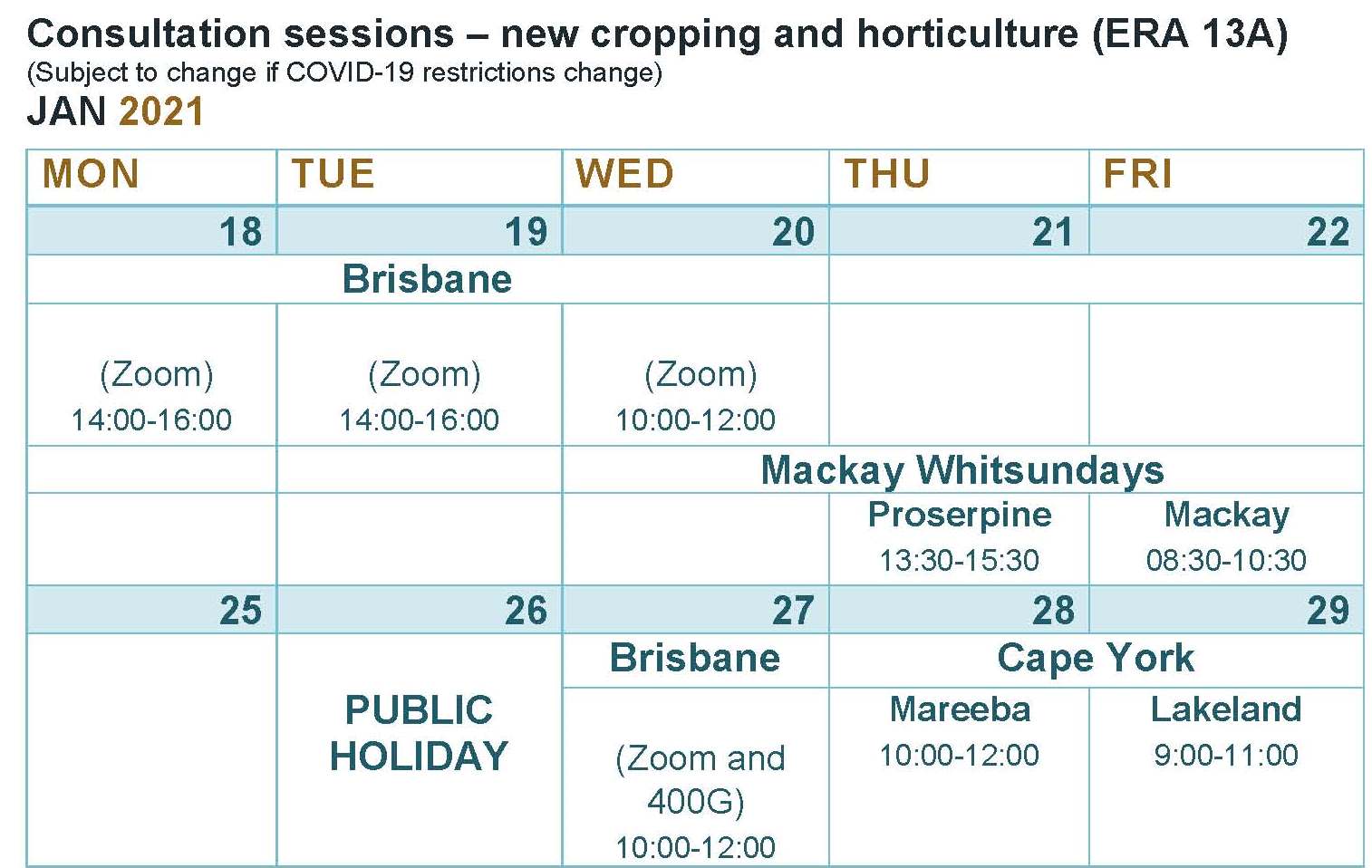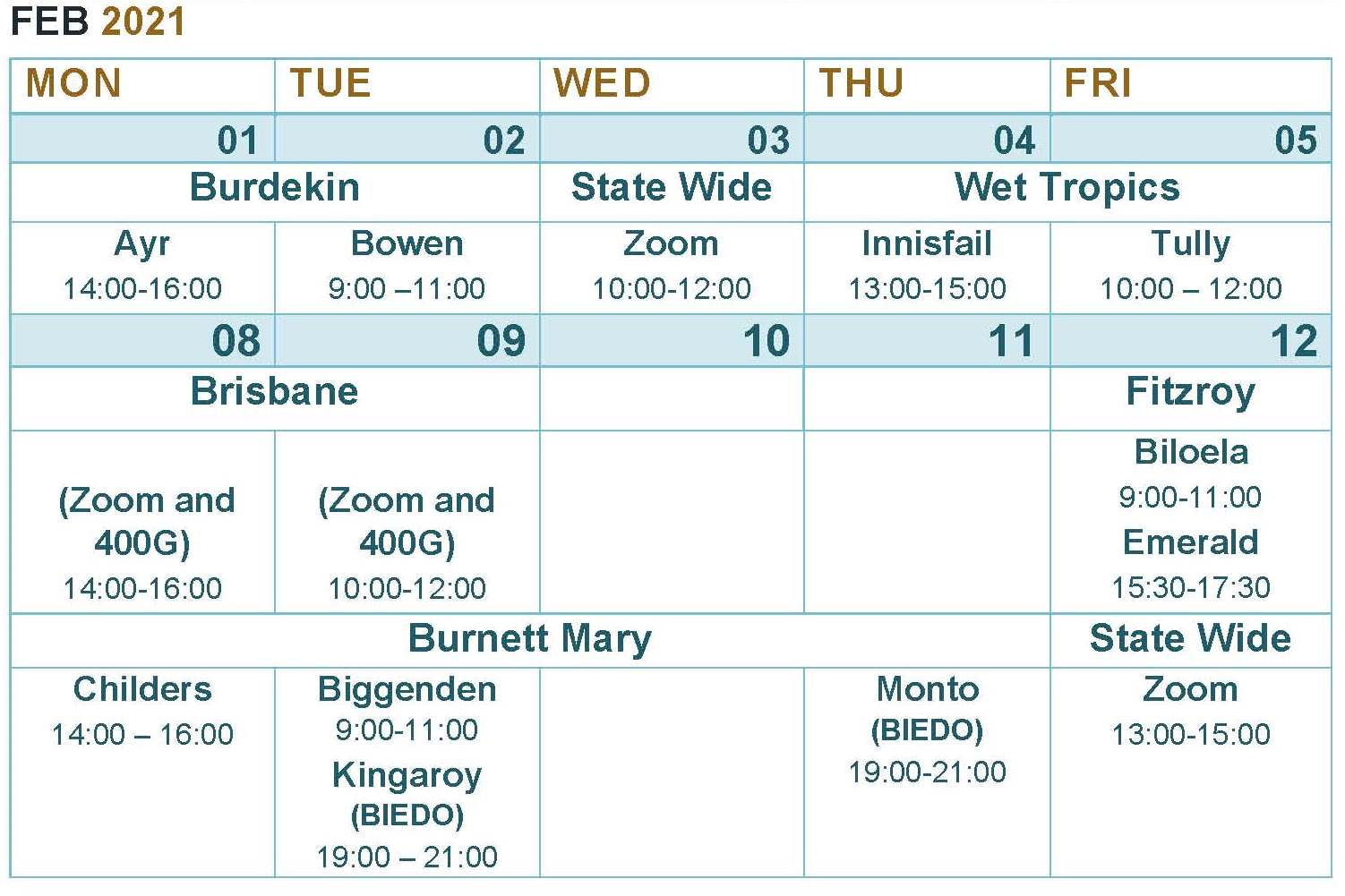17 December 2020. Updated 1 February 2021.
Related articles on Reef regulations.

Draft guides released for new or expanded cropping
The Queensland Government has now released details of what is required for permit applications for new or expanded cropping across all Reef catchments, which commence on 1 June 2021. These are draft guides, so it's important you provide your feedback before 17 February 2021.
Key points
- Before cultivating new areas or old farming areas across Reef catchments after 1 June 2021, you may need an environmental authority or permit.
- Two draft guides outline the nine required standard conditions and application process for four types of permits. The guides include how to pre-register with the Department of Environment and Science as a suitable operator to obtain a reference number. Did you know your name, permit and Lot/Plan details will be added to the online public register of environmental authorities, alongside mining and regulated waste permits?
- Permit applications will take 20 to 40 business days for government assessment, if no further information is required.
- Existing cropping and new cropping areas that commenced preparation work prior to 1 June 2021 are exempt from the permit requirement.
- There is a narrow window of public consultation on this new Reef regulation until 17 February 2021. Join AgForce and others in having your say about the feasibility of standard conditions and requiring an environmental permit for the right to farm your land. Contact the Office of Great Barrier Reef on 13 74 68 or visit Queensland Government’s Strengthening Reef Regulations website.
More information
- Please refer to the tables below for information on when all consultation sessions on the draft Standards are being held.
- Draft ERA13A guide to standard conditions for applicants
- Draft ERA 13A guide to permit applications for applicants
- Queensland Government Office of the Great Barrier Reef phone 13 74 68.
- AgForce Policy Officer Marie Vitelli phone 0429 062 852.
Government to hold consultations on draft Reef Standards
Make sure you register to attend in person or online.
The Queensland Government’s Office of the Great Barrier Reef is conducting face-to-face regional consultation sessions and online Zoom sessions to provide an overview of the proposed Reef Standard regulations for new or expanded cropping over 5 hectares, and the application process for the environmental authority permit, including the site-specific application process for cultivated areas greater than 100ha. The Standard commences on 1 June 2021 across all six Reef catchments.
It is important to pre-register for these consultation sessions if you are interested in attending, so that any updates due to COVID-19 restrictions or weather conditions can be provided.
To register, email officeoftheGBR@des.qld.gov.au or phone 13 74 68.
 |
 |
Farm design standards for new cropping include:
- No activity within five metres of the defining bank of a waterway or the seasonal highwater line at the point of flooding.
- Prior to 1 November each year, implement a waterway buffer between cropping or fallow area and defining bank of downslope waterways, to minimise sediment runoff. The waterway buffer is a minimum of five metres width, 80 per cent vegetated cover and not consist of the crop being produced. A ‘downslope waterway’ is defined as a natural watercourse or a constructed feature such as farm drain, roadside gutter or stormwater channel that drains into a natural waterway.
- Farm design to avoid and mitigate soil loss and surface water runoff to receiving waters during preparation work and prior to planting.
- Maintain erosion and sediment control measures. Measures include:
- Drainage structures such as spoon drains, contour banks, diversion banks, sediment traps, recycle pit or constructed wetland and
- Design of cropped area to reduce velocity of surface water runoff (surface cover, row length and direction, cultivation methods, drainage structures).
- Implement and maintain measures to avoid loss of irrigation water to natural waterways. Irrigation measures include matching amount of irrigation to crop requirement, design of area and /or use drainage structures.
- Record a property plan and update annually by 1 November each year, which shows property boundary, activity area, irrigation and drainage areas, natural watercourses, receiving waters, downslope waterways, waterway buffers and cropping information.
- On request, provide the property plan to a departmental authorised officer.
Have your say to Government before 17 February 2021
- AgForce estimates that producers managing approximately 2.7 million hectares of undeveloped or unused cropping land and greenfield sites across six Reef catchments will need to apply for a permit prior to commencing any soil cultivation after 1 June 2021.
- Even cleared areas with an existing Property Map of Assessable Vegetation (PMAV) will be subject to this new Reef regulation if there has been no cropping history over the last 10 years.
- Developing new areas of agricultural production is now deemed an Environmental Relevant Activity requiring a permit or licence to operate. The permit application fee will range from $670 to $870.
- The Reef Standard outlines requirements to prevent loss of sediment, nutrient, and irrigation water from cultivated areas greater than five hectares. Cultivated areas greater than 100 hectares require a detailed site-specific application.
- The Standard applies to all commercial crops grown and sold off-farm for a fee or reward.
- Does not apply to forestry, Leucaena, or grazed fodder crops or previous development approvals issued for High Value Agriculture HVA or Irrigated HVA.
- Exempt areas also include where cropping preparation work commenced prior to 1 June 2021, if the intent is to crop the area at least three times in the next 10 years, with one cycle in the next five years.
- Existing, ongoing cropping areas do not require a permit, but may be subject to existing or proposed minimum practice Standards, depending on the crop type.
- This regulation will affect new cane, grain, banana, horticulture, hay, fodder, and pasture seed crops grown, harvested and sold off-farm.
Contact the State Government’s Office of Great Barrier Reef: phone 13 74 68 or visit the website www.qld.gov.au/ReefRegulations for more details or to arrange awareness sessions in your local area.
AgForce does not support mandatory Reef regulations and will continue to offer constructive feedback from industry.
AgForce will continue to seek evidence-based government policy for Reef and challenge the claim by some scientists that runoff from farms is the major risk to Reef health.
Farmers are part of the solution. We care for our land, animals, crops, and our natural environment.
Farmers are the true environmentalists.
MEDIA RELEASE: Agriculture urged to engage with Government on Reef regulations
More information on the impacts and timeline of reef regulations

